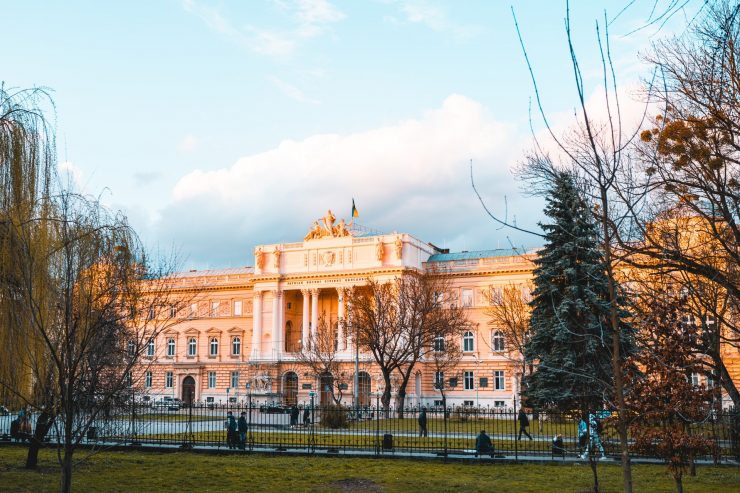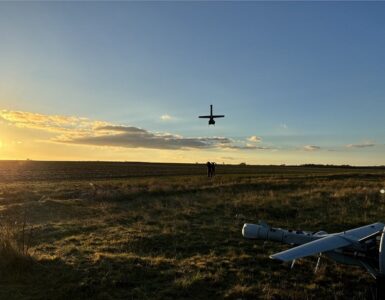UKRAINE
Ukrainian scientists strive to find remote opportunities abroad. While thousands fled Ukraine, those who stayed behind are “appealing to international institutions for remote work opportunities as well as access to journals, datasets, archives and other materials” so they can continue their research remotely as the war continues. [Ktnv.com]
Ukrainian IT companies have opened 18 offices abroad since the start of war. Poland, Romania, Croatia have been the primary beneficiaries of Ukraine’s IT talent. [Source: Forbes Ukraine]
MORE RUSSIA SANCTIONS
Chinese electronics makers Lenovo Group and Xiaomi Corp. are going to quietly stop sales in Russia despite the initial decisions to continue operations. The move is explained by the risks of secondary sanctions that could be imposed by European countries and the USA, key markets for the companies. [Source: Wall Street Journal]
Taiwan has restricted exports of 57 items of hi-tech equipment to Belarus. Sales of semiconductors, memory chips, processors, etc. can be made with only a special permission of Taiwan’s authorities. [Source: Interfax]
Russian scientists have their accounts at the Web of Science, the world’s citation database, suspended following the March decision of Clarivate, the database provider, to leave the Russian market. With Russia’s part in the database of 2.5%, it means the country was denied access to 97.5% of the global scientific information. [Source: Kommersant]
New sanctions by the US against Russia adopted on May 8 include cutting off state TV channels from American advertisers and equipment as well as prohibiting the country from using US-provided management and accounting consulting services. They also target the Russian defense sector and some bank top-managers. [Source: Guardian]
Foreign businesses are continuing to leave the Russian and Belarus markets or suspend their operations. The list was added by TeamViewer, Shell, Bitstamp, GetYourGuide, Live Nation Entertainment, and Polpharma. [Source: Telegram channel The Provisional Government]
RISING ISOLATION
Google has barred Russian companies from downloading and updating their paid apps on the Google Play platform. The decision doesn’t impact free apps. [Source: Google]
Russian tech company Yandex faced a refusal by a Finnish electricity provider to supply its data center located in Finland with energy, despite a five-year contract. While the reason for the disruption is unclear, Yandex has been unsuccessfully trying to have supplies restored, with the data center running on diesel generators for weeks. [Source: Data Center Knowledge]
ERA OF ANALOGUES
Expert: the sanctions against Russian gas and oil will spur a transformation of the sector. The industry is going to move towards production of high value-added products and designing and using domestic extracting, processing, and transportation technologies as well as field services. [Source: Vedomosti]
The bank Sber’s SberDevices company decided to develop its smart house platform without foreign suppliers. The decision was made after the Chinese company Tuya had refused to provide its cloud facilities to Sber. [Source: Cnews]
SHADY DELIVERY SCHEMES
Prices of hi-tech devices and consumer electronics of brands that have left Russia are likely to increase up to 50% compared with the pre-invasion levels. The items that are allowed to be imported and sold in Russia within a so-called parallel imports scheme will be delivered via neighboring countries driving the input costs. [Source: Forbes]
Unofficial sales of iPhone SE, which Apple had refused to export due to the war in Ukraine, have popped up in Russia in the second half of April, Izvestia reports. The price of gadgets are up to 1.5 times higher than in the US. [Source: Izvestia]
REGULATION
The Russian government is allegedly drafting legislation to grant residence permissions in the country to foreign IT professionals in a fast-track procedure. Other changes to the migration legislations suggest that companies will be able to employ IT specialists without the need to get permission from migration authorities. [Source: RBC]
The Russian Ministry of Economic Development plans to create a national digital platform called The Economy, which will be launched in 2023 to monitor, model and forecast the socio-economic development of the country. Better late than never: The country is facing the “worst recession in three decades” according to a Bloomberg report cited by Kyiv Independent. [Source: RBC, Bloomberg, Kyiv Independent]
STARTUPS
YvesBlue, a provider of ESG-as-a-service technology, raised $5 million in a seed round. Started as a nonprofit, YvesBlue has now a dozen clients among financial institutions which use the service to analyze ESG (Environmental, Social, and Governance) practices of assets they invest in. [Source: Axios]
A US-based startup Green Growth founded by Russian entrepreneurs Evgeniy Savin and Alifiaya Kayumova raised $200,000 from the fund New Nordic Ventures. Green Growth designs solutions for control of crop productivity. [Source: RB]
Russian Perm-based payment service for the gaming industry Xsolla has opened its office in Beijing, China. Now the company works in more than 200 countries with 130 currencies facilitating financial operations for users, publishers, and distributors. [Source: Xsolla]
E-COMMERCE
A logistics company CDEK has built its own marketplace CDEK aimed at shoppers willing to buy products of foreign brands, including those that have left the Russian market. The company said the prices of goods will be lower than those of the same brands sold in Russia under a parallel import scheme. [Source: CDEK]






Add comment